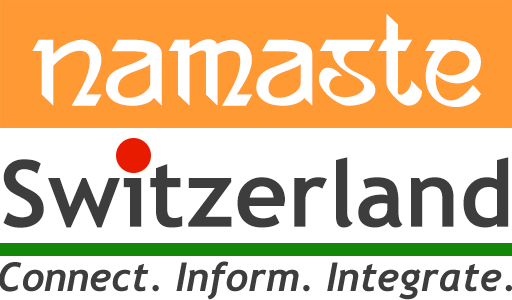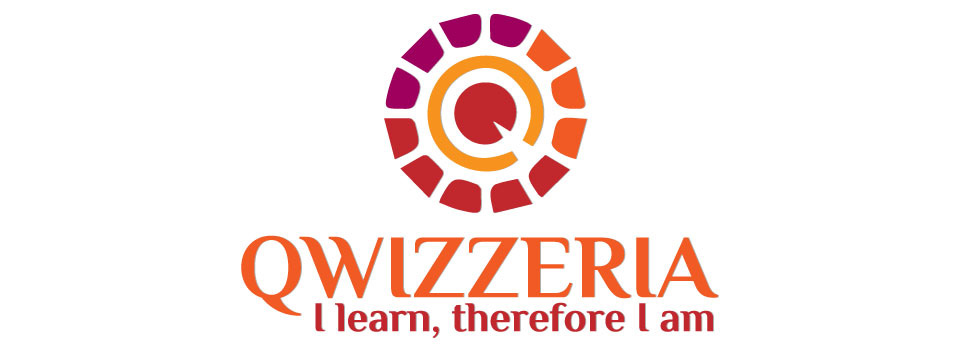The primary aim of Femmes Tische is to integrate people with a migration background, promote exchanges and create a social network. Here are some ‘good-to-know’ tips and links on health and nutrition provided by Sreelatha Vijayananda, moderator of the Femme Tisch meeting in Zug.
Femmes Tische is an award-winning national program that intends to bring local know-how to people living in Switzerland. Moderated discussions are held in a personal and informal setups to talk about topics including family, health and integration. It is held in 20 different languages, which makes it easier for most women to converse in their first language. Femmes Tische was started in 1996 and is available in 24 locations across Switzerland and Liechtenstein.
Sreelatha Vijayananda is the moderator of Femmes Tisches in Zug “In September and October she organised Femmes Tisches sessions with seven women – all of them were mothers interested in the topic of nutrition and health. “I had prepared breakfast with fresh ginger lemon tea, Indian chai, Idly (rice and dhal steamed dumplings) with chutney and toast with fresh veggies, tamarind sauce and cheese. Another lady had brought along delicious carrot-walnut muffins. After everyone arrived we started the session by reading through the list of tips to shop in a healthy, affordable way. We further discussed ways to keep food fresh and edible for a longer period of time. This gave us the opportunity to speak about how we deal with the daily cooking, organise the week and the household chores,” says Sreelatha.
She tells us more about what transpired at the meet-up, “One lady told that she prepares a weekly list with all the menus she wants to cook. To this list, she adds all the required ingredients and makes her shopping list. She has to devote about 1⁄2 hour at the beginning of the week, but then she doesn’t feel stressed about food and meals during the week. Another lady mentioned that she orders her weekly shopping through Coop online. She has two small kids and husband who travels a lot. So this makes it easier for her to get organised. Having fresh vegetables every day is very important for another mother. So she shops almost every day to buy seasonal and local vegetables. Bulk shopping is done on the weekend. She prefers to cook with less spices so that her child gets to know the taste of each vegetable.”

Shreelatha says, “We as mothers, have an immense responsibility towards the family to prepare dishes that are balanced and healthy, and fit into our budget. In addition, we should try and shop frugally to avoid wastage. Moreover, the food has to be adapted to the requirements of the children’s age and taste. And, we sometimes need to follow some of our traditional cooking styles and get all the required ingredients. All this needs an immense amount of time, dedication and organisation.” At the meet-up they also discussed about integrating local vegetables like Swiss chard (mangold), leek (lauch),celery (sellerie) etc into their cooking.”
Switzerland is far from being inexpensive. So, it’s also important to compare prices, quality and taste and still get value for a reasonable sum of money. We compared tinned chickpeas to dried chickpeas. Of course, it’s less time consuming to use tinned food, but in the long run it’s not advisable from health point of view and it is also more expensive.”
Making a reference to cultures, she says, “We all develop a certain style, which is very important to feel comfortable and content. The difficult part is to keep the motivation to do this every day. There is no one rule that fits all, but keeping up certain patterns helps us manage this better. We all came to the conclusion that it is important to prepare fresh food whenever possible and to buy locally available and seasonal items. Planning the menus in advance helps us build a routine and involving the kids in choosing the weekly menu makes it attractive to the kids to try out new dishes. When the children are a bit older they can also help in the kitchen or you can get them involved in the planning and execution of an entire dish. Children learn lots of skills and value the work of the parents.”

A summary with appropriate links for more information has been provided below for the benefit of Namaste Switzerland readers.
Addresses and further information
Storing food – www.gggessen.ch
Shopping and food – www.sge-ssn.ch
Consumer related questions – www.konsumentenschutz.ch
Budget – www.budgetberatung.ch, https://www.caritas-schuldenberatung.ch/de/home.html, www.skos.ch
Price comparisons – www.comparis.ch, www.preisvergleich.ch, www.toppreise.ch, www.heschnocash.ch
Health promotion – https://gesundheitsfoerderung.ch/
Health information in a number of languages – www.migesplus.ch
National counseling and information centers
General questions on nutrition – Swiss society for nutrition (SGE: Schweizerische Gesellschaft für Ernährung) – http://www.sge-ssn.ch
Questions regarding products – consumer protection
DE: foundation for consumer protection (SKS) – www.konsumentenschutz.ch
F: Consumer Federation of French speaking part (FRC) – http://www.frc.ch
Information and working documents on – Food and Budget – http://www.gggessen.ch/logicio/pmws/indexDOM.php?client_id=gggessen&page_id=blick&lang_iso639=de
Information platform for healthy and sustainable nutrition with information on food waste, plant and animal based food products etc.
Tips to shop healthy and within a reasonable budget – http://www.gggessen.ch/logicio/pmws/indexDOM.php?client_id=gggessen&page_id=blick&lang_iso639=de
Safety – Fact sheets for hygienic aspects from the federal office of consumer protection and veterinary services and standards – https://www.blv.admin.ch/blv/de/home/lebensmittel-und-ernaehrung/lebensmittelsicherheit/krankheitserreger-und-hygiene/hygiene.html
Labeling of food products – Spreadsheet, order at foundation for consumer protection (SKS) – https://www.konsumentenschutz.ch/sks/content/uploads/2015/09/Lebensmittellabel_Faltblatt_dt1.pdf
Online version from WWF Switzerland – https://www.wwf.ch/de/lebensmittel-label-ratgeber
Portions sizes – Spreadsheet (multiple languages); order at health promotion Canton of Aargau (paid version) – https://www.ag.ch/de/dgs/gesundheit/gesundheitsfoerderungpraevention/merkblaettergesundheit/merkblaetter.jsp
Mini Guide to “Inexpensive and good food products” from the foundation for consumer protection – https://www.konsumentenschutz.ch/shop/gesundheit-ernaehrung/miniratgeber-guenstig-und-gut-lebensmittel/
Further shopping tips and information on ‘clever shopping’
Storage and storage period of food products – https://www.clever-konsumieren.ch/infos-tipps/einkaufstipps/
Information leaflet from SGE – http://www.sge-ssn.ch/media/Merkblatt_Einkauf_Transport_und_Aufbewahrung_von_Lebensmitteln_2016.pdf
Organize your fridge
Information from SGE – http://www.sge-ssn.ch/ich-und-du/download/merkblaetter-und-unterlagen/
Video – https://praxistipps.focus.de/kuehlschrank-richtig-einraeumen-die-wichtigsten-tipps_42479
Tips for sustainable food and drinks – http://www.sge-ssn.ch/ich-und-du/essen-und-trinken/ausgewogen/foodprints/
Consume clever – Flyer with information and recipes to avoid food wastage. from LID.CH – https://shop.lid.ch/de/broschueren-buecher/minibroschueren/clever-essen.html
Information to avoid food wastage and recipes to reuse excess food – https://foodwaste.ch/
Tips and tricks – https://foodwaste.ch/tipps-und-tricks/
Brochure “5 steps – because you love your food” – https://foodwaste.ch/tipps-und-tricks/5-schritte/
Recycling of food – http://www.sge-ssn.ch/ich-und-du/essen-und-trinken/rezepte/rezepte-gegen-foodwaste/
Recipe ideas for reuse of excess food – an interactive website, where you can type in the excess food and it delivers ideas how to reuse with recipes – https://www.zugutfuerdietonne.de/praktische-helfer/rezepte-fuer-reste/
Article “the garbage of tomorrow”
German – http://www.sge-ssn.ch/media/tabula-4-13-d-report.pdf
French – http://www.sge-ssn.ch/media/tabula-4-13-f-reportage.pdf
Book – The Art of Fermentation. Sandor Elix Katz. Book available in Exlibris
Guidebook to ferment food products. A radio broadcast gives ideas to ferment food products – https://www.srf.ch/sendungen/ratgeber/rezept-rueebli-ingwer-selber-fermentieren
Here is a PDF document with further information – Nutrition Tips
About the author
 Sreelatha Vijayananda was born in Bangalore, India and moved to Switzerland with her familt at the age of 8. She completed her medical studies in Bern. She is married and has two sons aged 17 and 14. She has been successfully conducting round table sessions for Femmes Tisches Zug for the English speaking community in Zug for the last two years.
Sreelatha Vijayananda was born in Bangalore, India and moved to Switzerland with her familt at the age of 8. She completed her medical studies in Bern. She is married and has two sons aged 17 and 14. She has been successfully conducting round table sessions for Femmes Tisches Zug for the English speaking community in Zug for the last two years.
Disclaimer: Opinions expressed belong solely to the content provider. Namaste Switzerland does not undertake any financial/reputational/legal/misrepresentational impact or other obligations/ liabilities that may arise from the content.












